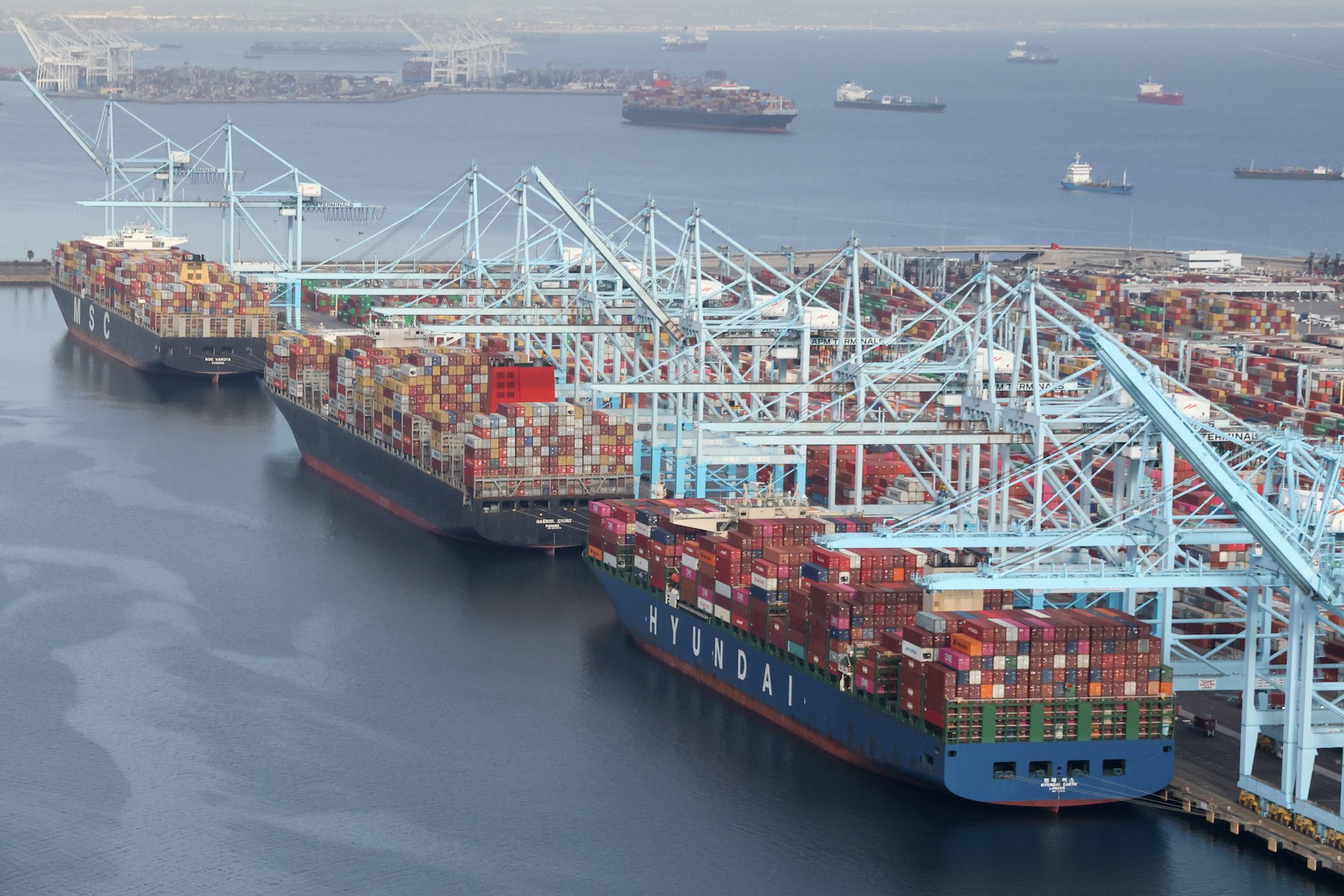U.S. Customs Revenue Tops $100 Billion for First Time Amid Tariff Surge
US revenue from customs duties this fiscal year surpassed $100 billion for the first time, reflecting higher tariffs imposed by the Trump administration.

The U.S. Federal Maritime Commission is formally urging the world’s top ocean carriers to adopt a set of best practices related to when and how detention and demurrage fees are applied, as well as how to dispute the charges.
The request was made by letter from FMC Managing Director Lucille Marvin to 25 container shipping companies and the World Shipping Council, the trade association representing liner companies, following a Vessel-Operating Common Carrier (VOCC) audit into detention and demurrage practices among the world’s top shipping companies calling in the U.S.
The letter calls for a “rapid” industry-wide adoption of three commonly-employed best practices that the FMC says will promote clarity and certainty about how and when the fees will be assessed, as well as how to challenge disputed charges
Demurrage and detention charges are widely used in container shipping. Demurrage refers to the charge that the shipper pays for the use of a container within the terminal, beyond the free time period, while detention refers to the charge for the use of the container outside of the terminal, also beyond the free time period, according to the U.N. Conference on Trade and Development (UNCTAD).
The letter is the latest action by the Commission related to detention and demurrage fees since the start of the pandemic. In May 2020, the FMC published a final interpretive rule on the reasonableness of ocean carrier and marine terminal operator detention and demurrage practices.
“The underlying principle of the rule is that demurrage and detention serve the purpose of incentivizing cargo movement and equipment return,” the FMC said in its announcement of the best practices. “The practices in the letter were identified by the Audit Team as initial measures that can align carrier documents and policies with the goals of the rule.”
The VOCC Audit Program and VOCC Audit Team, led by Ms. Marvin, were established in July at the direction of Commission Chairman Daniel B. Maffei.
Since July, the VOCC Audit Team has engaged with *nine of the top ocean carriers calling in the United States, by market share, to assess their compliance with the FMC interpretive rule. The audit team has also sought examples of “model behavior” from individual carriers that should become industry standards.
The FMC said the practices in the letter were identified by the Audit Team as initial measures to align carrier documents and policies with the goals of the rule.
In September, the Commission voted to begin work on an Advance Notice of Proposed Rulemaking on detention and demurrage billing practices due to be published in the coming months, as well issuing a “policy statement” concerning FMC private party complaints. It is also moving forward implementing five of eight Interim Recommendations Commissioner Rebecca Dye made to address detention and demurrage from her work the Fact Finding Officer for Fact Finding 29, meant to address current conditions contributing to congestion and other inefficiencies in the ocean freight system. The remaining three Interim Recommendations require action by Congress to change existing law.
The Federal Maritime Commission ordered Fact Finding No. 29 back in March 2020 to investigate congestion and bottlenecks at ports and other points in the supply chain that posed a serious risk to the U.S. economy.
The latest correspondence to the ocean carriers urges them to “rapidly adopt” the following best practices:
The work of the VOCC Audit Team and Fact Finding 29 is continuing.
*The nine top ocean carriers engaged are Maersk, MSC, CMA CGM, COSCO, Hapag-Lloyd, ONE, Evergreen, HMM and Yang Ming.

Subscribe to gCaptain Daily and stay informed with the latest global maritime and offshore news


Stay informed with the latest maritime and offshore news, delivered daily straight to your inbox
Essential news coupled with the finest maritime content sourced from across the globe.
Sign Up